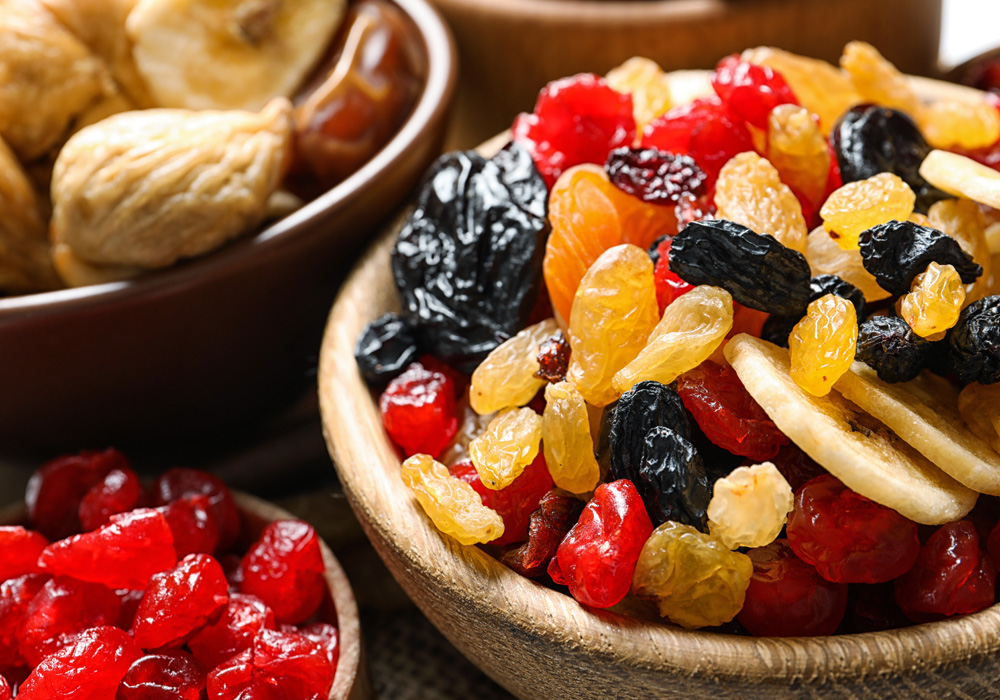Dried fruits constitute a contentious snack. Some people consider them a healthy and nutritious option, while others avoid them as they think of them as overprocessed and “overloaded” with sugar. But what is really the case? First of all, the term “dried fruits” applies to fruits from which most of the water they naturally contain has been removed with certain drying methods. The result is a small yet highly nutritious and energy-dense food.
Health benefits
Dried fruits are rich in antioxidants, minerals, trace elements and fiber, and have proven health benefits:
- Contribute to blood sugar regulation
- Protect the cardiovascular system
- Support the proper functioning of the intestine
- Fight free radicals
More specifically, let’s have a look at the benefits offered by some of the most popular dried fruits:
Raisins: The well-known and favored raisins are rich in fiber, potassium, boron and many more nutrients. They contribute to the reduction of blood pressure and cholesterol, while also fighting against inflammation. Furthermore, thanks to the vegetable fibers they contain, they lead to an increased feeling of fullness and satiation, while their high boron content supports bone density in women who go through menopause. Finally, along with plums, they rate first on the list of the fruits – dried or fresh – with the highest antioxidant activity, i.e., the ability to absorb free radicals.
Prunes: Prunes are highly nutritious, rich in fiber, potassium, vitamin A and vitamin K. They are known to effectively treat constipation, thanks to their fiber and sorbitol content. As an important source of antioxidants, they can inhibit the oxidation of LDL cholesterol. In fact – according to research published to the “Journal of the American College of Nutrition” – prunes as well as dried figs present the most ideal nutritional profile (compared with other dried fruits).
Dates: Dates have a particularly sweet taste and make for a valuable source of fiber, iron and potassium, which protects the cardiovascular function. In addition, they exhibit anti-inflammatory properties thanks to the magnesium they contain, which fights inflammations.
Dried apricots: Dried apricots are high in potassium, offering strong protection against heart diseases. They also help to maintain blood pressure at normal levels.
Dried figs: Particularly nutritious, they contain potassium, magnesium, iron and calcium. Compared to other dried fruits, they have the highest fiber content and – thanks to their seeds – fight constipation effectively. Finally, they have comparatively fewer calories, while leading to an increased satisfaction of appetite.
To summarize, dried fruits constitute a healthy and nutritious option. Τhe fact that they can be preserved for a long time and the convenience they offer enabling us to enjoy our favorite fruits all year round should be considered among their advantages. Thus, we may consume them without any hesitation, always in small quantities and preferably in combination with other nutrients (e.g., yogurt or nuts).

